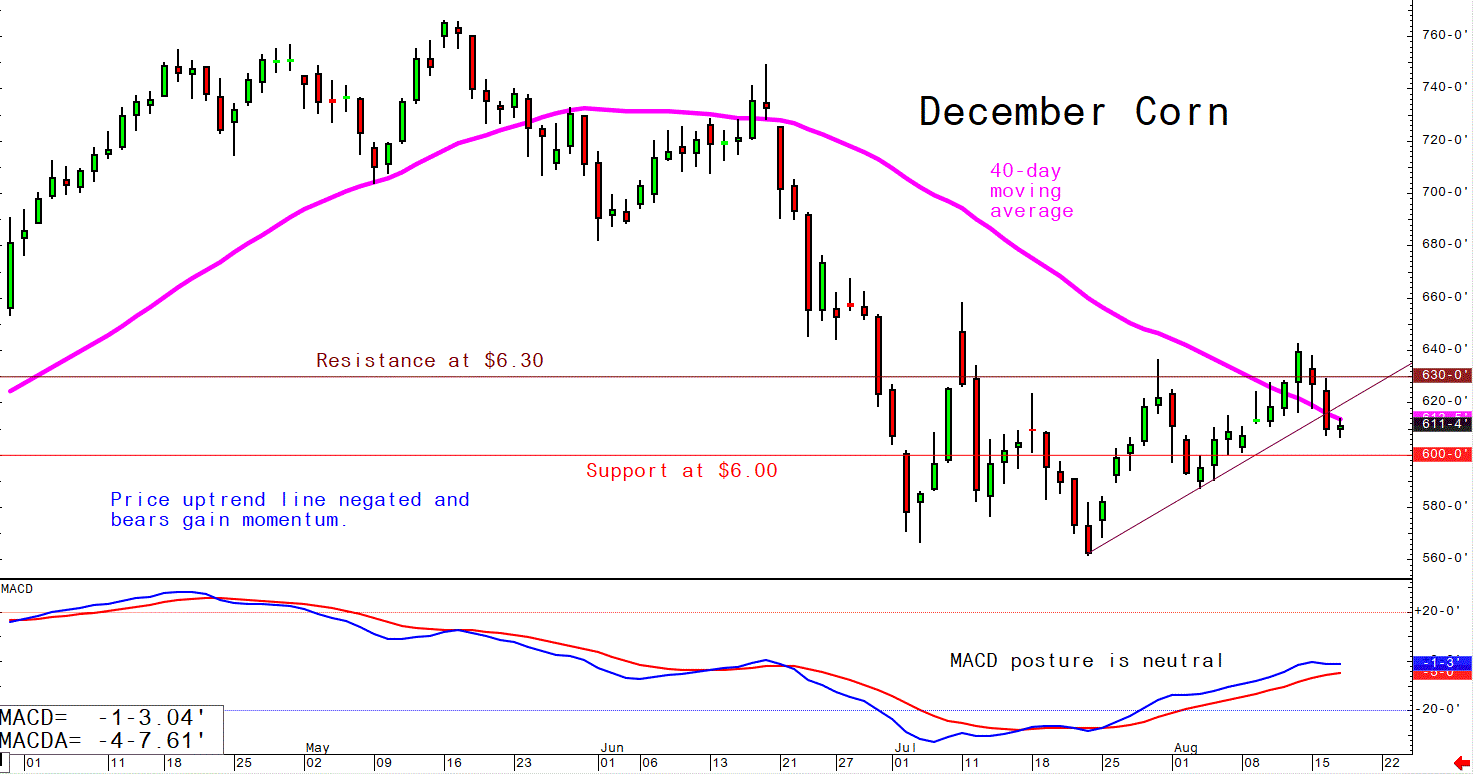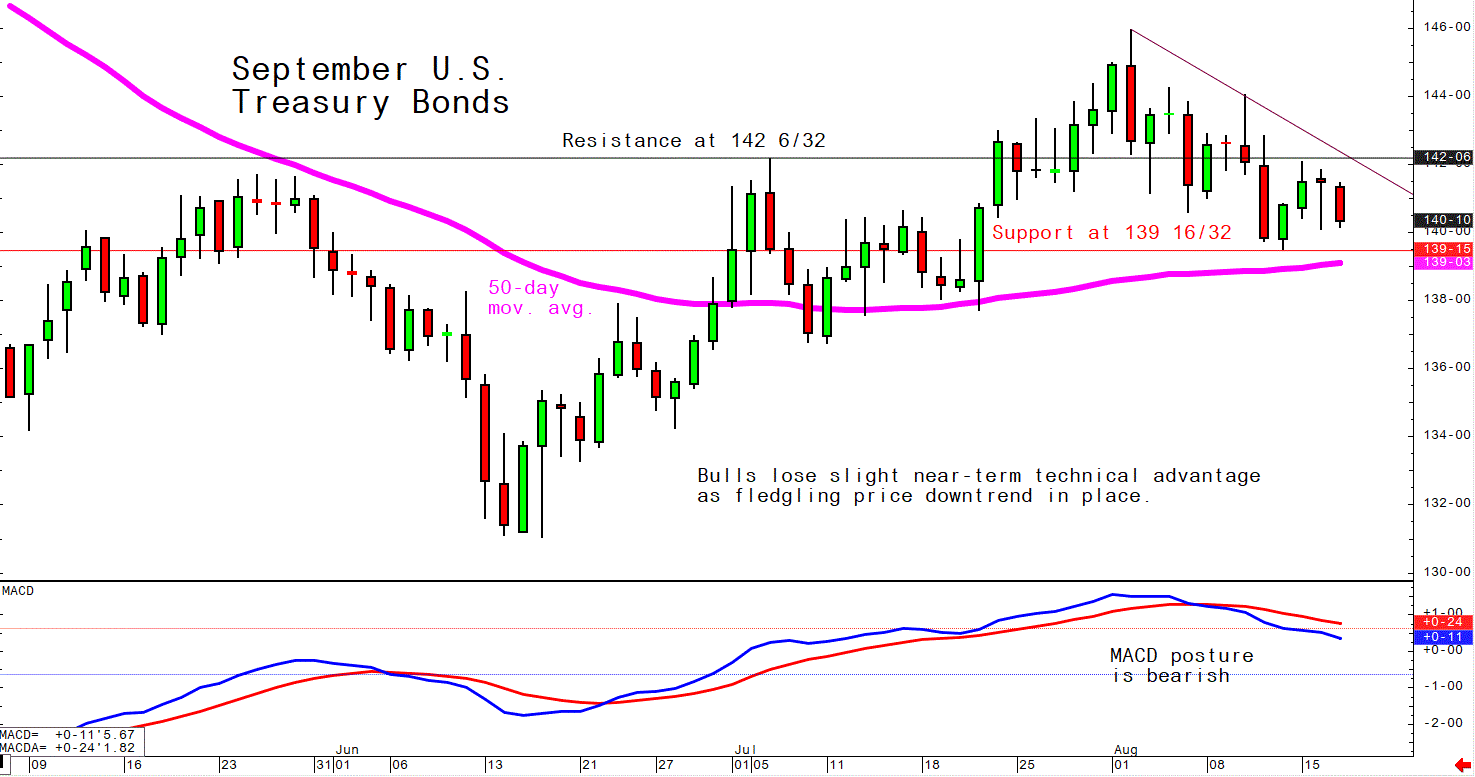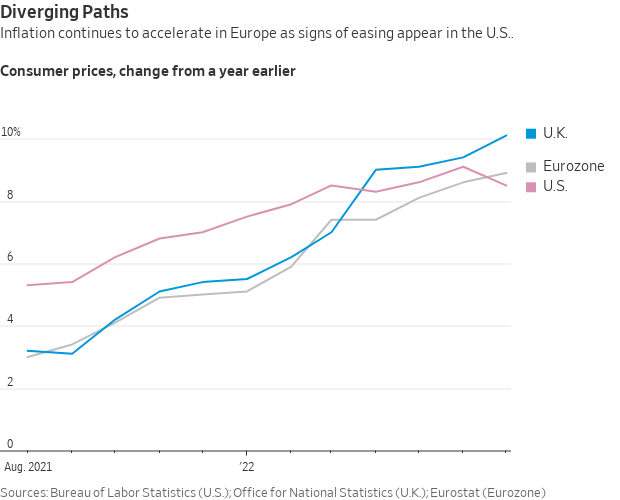Cheney Defeated by Landslide in Wyoming Primary; Sarah Palin Advances to Alaska's General Election

New mandatory water cuts for some states & Mexico
|
In Today’s Digital Newspaper |
Russian missiles struck two Ukrainian port cities, a day after explosions hit Crimea for the second time in less than two weeks. Rockets landed in Odessa and blasts were heard in several districts of Mykolaiv today, Ukrainian officials said.
USAID will spend more than $68 million to buy and ship Ukrainian wheat for the World Food Program.
The federal government is implementing new mandatory water cuts for the Southwest U.S. due to an extraordinary drought drying up the Colorado River and draining the nation's largest reservoirs — Lake Mead and Lake Powell. The Colorado River will operate in a Tier 2 shortage condition for the first time starting in January. This means Arizona, Nevada and Mexico will have to further reduce their Colorado River use beginning in January, or the federal government may step in and take control of the states' water management plans. As a result, states, water managers and tribes are now back at the negotiating table.
U.K. inflation accelerated more than expected in July to the highest in 40 years as the squeeze on consumers intensified. The Bank of England has forecast that inflation may reach 13% by autumn. Money markets lost no time in betting that the Bank of England will more than double interest rates in nine months, while former BOE official Andrew Sentance remarked that the BOE's key rate may need to rise to as much as 4% as policy makers have fallen behind the curve.
China’s ambassador to the U.S. accused Washington of escalating the crisis over Taiwan, saying the visit of House Speaker Nancy Pelosi and a subsequent delegation “greatly infringed on China’s sovereignty.”
Time for a refresher course on the Emergency Relief Program (ERP). See Policy section.
The FDA said it would allow some hearing aids to be sold over the counter, aiming to widen their availability in ways that could bring down costs and encourage innovation.
The Biden administration wipes out billions in student loan debt. The Education Department agreed to waive $4 billion owed by some 208,000 students who attended the bankrupt ITT Technical Institute schools and forgave another $24 million for DeVry University students. Biden still hasn’t decided whether to extend a pause on federal student loan obligations, which would otherwise resume next month.
The Senate is on recess until Sept. 6. The chamber will briefly convene some days for a pro forma session to fulfill its constitutional obligation of meeting once every three days. No legislative business will be conducted. The House is on recess until Sept. 13 but will also hold a brief pro forma session sometimes. The Supreme Court is on recess until Oct. 3.
Tuesday elections: Cheney easily lost the Wyoming GOP primary while Palin, Tshibaka, Murkowski go through in Alaska. Details in Elections & Politics section.
Defeated Wyoming Rep. Liz Cheney confirmed today that she is “thinking about” running for the White House to keep her nemesis, former President Donald Trump, “out of the Oval Office.”
A Thursday hearing at a federal district court in Florida will determine whether to unseal the affidavit that the FBI used to search Trump’s Mar-A-Lago estate. Trump is championing “immediate release” of the document for transparency, while the Department of Justice says it contains “highly sensitive” information that could damage its ongoing investigation into how classified materials wound up at the resort.
The NBA said it won’t hold games on Nov. 8 to encourage fans to vote in the midterms.
Election Day 2022 is 83 days away. Election Day 2024 is 811 days away.
|
MARKET FOCUS |
Equities today: Global stock markets were mixed overnight, with Asian indexes mostly up and European indexes mostly down. U.S. stock indexes are pointed toward lower openings. Monthly retail spending data are due premarket. But attention this afternoon will likely shift back to rate policy when the Fed minutes are out at 2 p.m. ET. Target on Wednesday said its quarterly profit fell nearly 90% from a year ago, as the retailer followed through on its warning that steep markdowns on unwanted merchandise would weigh on its bottom line. The big-box retailer missed Wall Street’s expectations by a wide margin, even after the company itself lowered guidance twice. Yet the company reiterated its full-year forecast, saying it is now positioned for a rebound. In Asia, Japan +1.23%. Hong Kong +0.46%. China +0.45%. India +0.61%. In Europe, at midday, London -0.28%. Paris -0.34%. Frankfurt -0.51%.
U.S. equities yesterday: The Dow gained 239.57 points, 0.71%, at 34,152.01. The Nasdaq was down 25.50 points, 0.19%, at 13,102.55. The S&P 500 rose 8.06 points, 0.19%, at 4,305.20.
Agriculture markets yesterday:
- Corn: December corn dropped 18 cents to $6.10 1/4, the lowest close since Aug. 8.
- Soy complex: November soybeans fell 31 cents to $13.88, the contract’s lowest closing price since Aug. 3. September soymeal fell $16.30 to $435.90. September soyoil fell 110 points to 67.84 cents.
- Wheat: September SRW wheat fell 14 3/4 cents to $7.86. September HRW wheat fell 11 cents to $8.71 3/4. September spring wheat futures fell 8 cents to $9.02 3/4.
- Cotton: December cotton rose 326 points to 116.85 cents per pound, the contract’s highest closing price since June 17.
- Cattle: October live cattle rose $1.875 to $145.675, the contract’s highest closing price since April 22. September feeder cattle rose $2.475 to $185.475.
- Hogs: October lean hogs plunged the $4.00 daily limit to $96.575, the lowest close since Aug. 3. Today’s CME lean hog index is expected to fall 65 cents to $121.06, the fourth decline in the past five days.
Ag markets today: Corn, soybeans and wheat posted two-sided trade overnight but are mildly firmer this morning amid light corrective buying. As of 6:30 a.m. CT, corn futures are trading fractionally to 2 cents higher, soybeans are 8 to 10 cents higher and wheat futures are 1 to 4 cents higher. Front-month crude oil futures are trading just below unchanged and the U.S. dollar index is around 250 points higher this morning.
Technical viewpoints from Jim Wyckoff:





Gold
On tap today:
• U.S. retail sales for July, due at 8:30 a.m. ET, are expected to increase 0.1% from the prior month. UPDATE: U.S. retail spending was flat in July, the Commerce Department said Wednesday. Lower prices at the pump reduced gas sales but allowed spending elsewhere.
• Federal Reserve releases minutes from its recent policy meeting at 2 p.m. ET.
• Fed governor Michelle Bowman speaks on financial services at 9:30 a.m. ET, and on Covid-19 and the role of women in the economy at 2:20 p.m. ET.
U.S. strength in 3Q to give way to renewed 4Q weakness: ING Economics. “A rebound in manufacturing and industrial output, coupled with a decent performance from the consumer sector and net trade and inventories being less of a drag support our view of 3%+ GDP growth in 3Q. However, the housing market, a weaker external environment, higher rates and deteriorating business surveys suggest tougher times ahead,” says ING Economics.
U.K. consumer prices were 10.1% higher in July than a year earlier, up from 9.4% in June. That was the highest rate of inflation in more than four decades and the fastest increase in prices recorded in one of the Group of Seven rich countries since the current surge started in early 2021.

Japan’s trade deficit a record. Seasonally adjusted, the shortfall widened to 2.13 trillion yen ($15.9 billion) in July, the finance ministry reported Wednesday. Imports surged 47% from a year ago, led by crude oil, coal and liquefied natural gas. Exports also gained 19%, driven by cars and chip-making devices, as supply bottlenecks eased after China ended its Covid lockdowns in Shanghai. Key items:
- Crude oil imports jumped 107% from a year ago with coal soaring about 270% and LNG increasing 124%.
- Food imports rose 31%.
- The average exchange rate was 136.05 yen per dollar, 23.1% weaker than a year ago; a cheaper yen makes imports more expensive.
As energy and food inflation persist, Prime Minister Fumio Kishida this week ordered further price relief measures to help businesses and households, including the continuous price cap on imported wheat and a boost in grants for local governments. The additional measures will be compiled by early September.
Market perspectives:
• Outside markets: The U.S. dollar index is slightly higher in early U.S. trading. The yield on the 10-year U.S. Treasury note is fetching 2.86%. U.S. crude was around $86.30 per barrel and Brent around $91.75 per barrel. Gold and silver were under pressure ahead of US economic updates, with gold around $1,783 per troy ounce and silver around $19.78 per troy ounce.
• U.S. natural gas futures ended Tuesday's session at 14-year highs, lifted partly by soaring natural gas prices in Europe that have climbed in recent days to their highest levels since Russia's invasion of Ukraine, and just shy of all-time highs. Front-month Nymex natural gas for September delivery at the highest closing level since August 2008; gas was trading at ~$66/MMBtu in Europe and a record $57 in Asia.
• Average diesel prices across the U.S. have fallen by about 90 cents a gallon since the week of June 20.
• Southwestern cotton growers are abandoning millions of parched acres that they planted in spring, prompting forecasts for the weakest U.S. harvest in more than a decade and sending prices sharply higher. Link to WSJ article.

• FSA certified acreage data to be released next week. The first batch of FSA certified acreage originally scheduled to be released Aug. 12 will be posted on Aug. 22 at 3 p.m. ET, according to USDA. FSA issues the initial certified acreage data in August and then updates the figures each month until January.
• Ag trade: Bangladesh tendered for 50,000 MT of optional origin milling wheat.
• Emergency Board provides report to White House on railroad labor dispute. The Presidential Emergency Board (PEB), which was established to find a solution to the labor dispute between Class I railroads and labor unions, recommended railroads raise pay structures by one percentage more than they offered for three out of the five years of the contracts. Carriers had proposed an increase of 2% for 2024 while the PEB recommended a rise of 4.5%. The PEB recommended that railroads pay a $1,000 “service recognition” bonus annually versus the $1,000 signing bonus they had proposed, and recommended an increase in health benefits, an additional personal day each year and changes in how travel expenditures are reimbursed. The PEB recommendations are not binding and provide a pathway for the two sides to reach agreement during a 30-day cooling off period following issuance of the report. Labor unions are prevented from going on strike during that 30-day period. If no accord is reach during that time, Congress could step in and mandate the PEB recommendations or some other settlement. Congress could also impose additional cooling off periods to avert a strike. The earliest possible date that a strike could take place is Sept. 16.
• Colorado River water cuts announced. Arizona, which grows most of the lettuce eaten in the U.S. each winter, will be losing about a fifth of the water it gets from the Colorado River as drought and climate change diminish the key water basin. The U.S. will withhold 21% of Arizona’s annual water allocation from the Colorado River in 2023 as part of conservation efforts announced Tuesday by the Interior Department’s Bureau of Reclamation. Lake Mead and Lake Powell — the two largest U.S. reservoirs — stand at historically low levels and combined are at 28% of their capacity, officials said.
Interior Department officials also announced an 8% reduction to Nevada and 7% cut to Mexico’s share of the river, which flows 1,450 miles from Colorado into northern Mexico and is relied upon by 40 million people. The cuts are initially from Lake Mead, the reservoir on the Nevada-Arizona border formed by Hoover Dam.
California wasn’t hit with cuts. As a holder of senior water rights, conditions aren’t yet severe enough to trigger reductions.
The river’s two main reservoirs — Lake Mead and Lake Powell — are now nearly three-fourths empty and are projected to continue dropping. As a result, the Biden administration ordered states to come up with a plan that would decrease the total amount of water diverted by 15% to 30%.
The Inflation Reduction Act (IRA) includes $4 billion in funding for water management and conservation efforts in the Colorado River Basin and other areas experiencing similar drought conditions. Much of that money is expected to be used to pay farmers and others to voluntarily use less water. Under one proposal offered by Arizona farmers, participating growers would forgo 1 acre-foot of water for each acre of farmland, generating roughly 925,000 acre-feet of savings. Last November, President Biden signed the Infrastructure Investment and Jobs Act, which allocates $8.3 billion to address drought-related challenges in Western water and power infrastructure.
• NWS weather: There is a Slight Risk of excessive rainfall over parts of the Southern Rockies and Southwest through Thursday morning... ...There is a Slight Risk of excessive rainfall over parts of Southwest and a second area over parts of the Southeast from Thursday into Friday morning... ...There is a Slight Risk of excessive rainfall over parts of the Lower Mississippi Valley/Central Gulf Coast through Thursday morning... ...There is an Excessive Heat Watch and Heat Advisory over parts of the West Coast through Friday.

Items in Pro Farmer's First Thing Today include:
• Mild price recovery overnight
• India raises wheat crop estimate despite declining forecasts from others
• Malaysia maintains palm oil export duty, cuts reference price
• Bullish cash cattle hopes build
• Hog traders take bearish stance
|
RUSSIA/UKRAINE |
— Summary: Russian forces are now using up to 60,000 rounds of ammunition each day, a Ukrainian official said. That estimate is in line with many made by Western analysts about the volume of ammunition being used by Russian forces after a relative lull in early July. Russia's main efforts are concentrated on "pushing Ukrainian troops back from the Donetsk oblast," the commander-in-chief of Ukraine's armed forces said. Meanwhile, Russian Defense Minister Sergei Shoigu said Moscow has "no need" to use nuclear weapons to achieve its objectives in Ukraine.
- Russian missiles struck two Ukrainian port cities after a series of explosions in Crimea that analysts see as part of a broader effort to dislodge Russian forces from territory in the south of the country. The U.K.’s Ministry of Defense said Wednesday that Russian commanders would likely be “increasingly concerned with the apparent deterioration in security across Crimea, which functions as a rear base area for the occupation.”
- Ukraine's first ship of humanitarian food is headed to Africa, which could help alleviate what the World Food Program calls a "global food crisis," but one that's particularly acute in Africa. On Tuesday, the Lebanese-flagged carrier Brave Commander and its 23,000 or so tons of wheat cargo departed Ukraine — and it's expected to arrive in Djibouti in about nine days.
Just three Ukrainian Black Sea ports are now exporting cargo, mostly grain, according to the terms of a paper deal struck in July between the United Nations, Russia, Ukraine, and Turkey, which hosts an inspection terminal for such vessels. Those ports are in Odesa, Chornomorsk, and Pivdennyi. - U.S. Agency for International Development (USAID) is providing over $68 million in additional funding to the World Food Program (WFP) to buy, move and store up to 150,000 tonnes of Ukrainian wheat, as it partnered with the Howard G. Buffett Foundation and the Minderoo Foundation in support of the first humanitarian grain shipment from the Ukrainian port of Yuzhny that departed Tuesday (Aug.16). The U.S. has provided $4.8 billion to the WFP this year. The WSJ was the first to report the USAID funding.
- U.S. intelligence officials knew in Oct. 2021 that Russia would invade, the Washington Post reports in "Road to War" in Ukraine article (link), which was published Tuesday. And American spies knew this because they allege they "had penetrated multiple points of Russia's political leadership, spying apparatus, and military, from senior levels to the front lines," U.S. officials told the WaPo. That autumn analysis — featuring satellite imagery, communications intercepts, and human intelligence — was presented to White House officials, who reportedly dispatched CIA Director William Burns to Moscow to confront the Russians and warn consequences would result from an actual invasion. When briefed to NATO allies, Germany and France thought it was bogus, and cited the botched intelligence justifying America's Iraq invasion two decades ago. However, the Brits and allies in the Baltics were convinced, according to the WaPo. Even Ukrainian officials were deeply skeptical at first, including Foreign Minister Dmytro Kuleba.
- Germany will keep nuclear power a little longer. Facing a historic energy crisis, it will run its remaining three nuclear plants through the winter, pausing a long-term national policy to phase them out. The reversal comes as the German energy regulator warned that the country may not have enough fuel stored for winter should Russia, its main natural gas supplier, completely shut off supplies.
- German industry increasing warnings as Rhine water levels fall. Germany’s main industry lobbying group warned that factories may have to slow or even halt production temporarily due to the drop in water levels along the Rhine River, a key shipping artery for Western Europe, after levels fell to a new record low. “The ongoing drought and the low water levels threaten the supply security of industry,” Holger Loesch, deputy head of German business lobby group, BDI, told the Associated Press. He warned that droughts like this could become more frequent in the years to come, and asked leaders in Berlin to react more quickly to weather conditions that could affect the Rhine or other waterways. Many barges will not ship cargo along the Rhine when its levels drop below 40 cm. “It’s only a question of time before facilities in the chemical and steel industry have to be switched off, petroleum and construction materials won’t reach their destination, and high-capacity and heavy-goods transports can’t be carried out anymore,” Loesch said, citing fear of bottlenecks, especially for key energy supplies.
Background: The Rhine is the most important river for delivery of diesel, coal, and other commodities in the region, as we previously highlighted. Low water levels also mean utilities could end up using more gas as an alternative — a dangerous situation that could exacerbate the bloc’s ongoing gas crisis.
|
POLICY UPDATE |
— Treasury Secretary Janet Yellen directed the IRS to develop an operational plan for deploying the around $80 billion in funds, kick-starting an overhaul of the beleaguered tax collector made possible via the Inflation Reduction Act (IRA). In a memo to the IRS commissioner, Charles P. Rettig, Yellen mapped out her top priorities, including clearing a backlog of unprocessed tax returns, improving taxpayer services, revamping antiquated technology and hiring thousands of new employees. Yellen wrote the IRA “provides the IRS what it has needed for years — a stable stream of mandatory funding that will allow the agency to serve American taxpayers the way they deserve and to enforce the tax laws against high-net-worth individuals, large corporations and complex partnerships who today pay far less than they owe.” The $80 billion over a decade will be a substantial infusion for an agency that had a budget of $13.7 billion in 2021. Yellen directed the agency to draft the plans within six months, and she tapped her deputy, Wally Adeyemo, to work with Rettig to develop the new initiatives and timelines. (Rettig’s term ends in November.)
The Treasury Department projected that the agency would hire about 87,000 new employees over the next decade to more than compensate for an expected wave of 50,000 retirements in coming years. Most of those hires are expected to work in technology and customer services roles.
Yellen in the memo promised that middle-class households would not face more onerous scrutiny and that their audit rates would not rise. “These investments will not result in households earning $400,000 per year or less or small businesses seeing an increase in the chances that they are audited relative to historical levels,” Yellen wrote. “Instead, they will allow the IRS to work to end the two-tiered tax system, where most Americans pay what they owe, but those at the top of the distribution often do not.”
Yellen said in her memo that she was prepared to approve the use of funds quickly so that the IRS could improve services for the filing season that will begin next year.
— It’s time for a refresher course on the ERP… the Emergency Relief Program (new name for WHIP+).
- For crops covered by crop insurance, the ERP Phase 1 payment calculation for a crop and unit will depend on the type and level of coverage obtained by the producer. Each calculation will use the following ERP factor based on the producer’s level of crop insurance or Noninsured Crop Disaster Assistance Program (NAP) coverage.
Crop Insurance: The ERP factor is 75% to 95% depending on the level of coverage ranging from catastrophic to at least 80% coverage.
NAP: The ERP factor is 75% to 95% depending on the level of coverage ranging from catastrophic to 65% coverage. FSA will perform a conventional NAP payment calculation with an adjusted guarantee equal to the ERP Factor.
- The ERP Phase 1 payment calculation for a crop and unit will depend on the type and level of coverage obtained by the producer. RMA and FSA will calculate each producer’s loss consistent with the loss procedures for the type of coverage purchased but using the ERP factor in place of the coverage level. This calculated amount would then be adjusted by subtracting out the net crop insurance indemnity or NAP payment, which is equal to the producer’s gross crop insurance indemnity or NAP payment already received for those losses minus service fees and premiums.
- Payments are prorated: ERP Phase 1 payments for crops covered by crop insurance will be prorated by 75% to ensure that total ERP payments, including payments under ERP Phase 2, do not exceed the available funding. ERP Phase 1 payments for NAP-covered crops will not be prorated due to the significantly smaller NAP portfolio that by its nature only covers smaller acreages and specialty crops that are not covered by crop insurance.
- The Notice of Funding Availability for ERP says the following: A total of $10 billion was allocated to certain disaster relief programs. Congress allocated $750 million for livestock assistance. Additional payments may be provided if funds are available after ERP Phase 2.
|
PERSONNEL |
— United Nations appoints a new climate czar. Grenada’s environment minister, Simon Stiell, was appointed yesterday as the next U.N. climate chief, a surprise announcement that comes as nations scramble to get back on track to meet shared climate goals ahead of this year’s fast-approaching COP27 summit in Egypt. Stiell will succeed Patricia Espinosa of Mexico as the executive secretary of the U.N.’s Framework Convention of Climate Change, or UNFCCC. Link for details.
|
CHINA UPDATE |
— China warns U.S. against underestimating Beijing’s Taiwan resolve. Beijing’s envoy to Washington, Ambassador Qin Gang, rejected U.S. officials’ argument that lawmakers act independently of the White House or that the administration had no control over the agenda of House Speaker Nancy Pelosi (D-Calif.), who visited Taiwan in early August. Qin said that trips by Pelosi and other members of Congress violate existing U.S./China agreements. “We are handling a serious fallout from Pelosi’s visit,” Qin told reporters in Washington. He warned the U.S. not to “underestimate the strong resolve, determination and the capability of the Chinese government and the people to defend national sovereignty and territorial integrity.”
“Congress is part of the government of the U.S. — it’s not an independent, uncontrollable branch,” Qin continued. “Congress is obliged to abide by the foreign policy of the United States. That’s why we we feel very frustrated and dissatisfied with Sen. Markey’s visit to Taiwan. It’s provocative, it’s unhelpful.”
Background: A congressional delegation led by Democratic Senator Edward Markey of Massachusetts wrapped up a trip to the island over the weekend. Pelosi’s visit earlier in August provoked military drills by Beijing.
Meanwhile, Russian President Vladimir Putin commented on Pelosi’s visit, calling it a “carefully planned provocation.”
— Central China is in the grips of a record-setting drought. The State Flood Control and Drought Relief Headquarters activated an emergency drought response in six provinces late last week. Water levels in the Yangtze River and key reservoirs have hit the lowest level for August since records began. Farmers who typically rely on rains and floods will need to irrigate crops this year.
— Chinese factories flock to Mexico, crossing U.S. border to avoid tariffs. Investment surges 76% to $606 million as appliance and furniture makers build plants. Link for details.
|
ENERGY & CLIMATE CHANGE |
— Dept. of Energy (DOE) dramatically reduces number of EVs qualifying for new tax credit. The Biden administration issued initial guidance on the new tax credits for electric vehicles (EVs) under the Inflation Reduction Act (IRA) and the number of vehicles eligible for the credits is down significantly from levels prior to the IRA. The DOE noted 18 model year 2022 and 3 model year 2023 vehicles that qualify for the credits for the remainder of 2022, down from 53 all electric vehicles and 89 plug-in hybrids that were eligible for credits before the IRA became law.
The reductions come due to North American assembly requirements in order for vehicles to qualify for the credits and there are also manufacturers that have met the 200,000-vehicle cap. For 2023, the cap is removed but other provisions on battery components and critical minerals that mean currently no models would qualify for the new credits. Future guidance is unclear on how carmakers and consumers can determine the source of battery components and critical minerals relative to future purchases. The Department of Treasury said they will “post information and request comments from the public on various existing and new tax credits in the coming weeks and months, including on further changes to eligibility rules for clean vehicle tax credits.” Link for info.
|
CORONAVIRUS UPDATE |
— Summary:
- Global Covid-19 cases at 592,363,670 with 6,441,554 deaths.
- U.S. case count is at 93,142,433 with 1,037,970 deaths.
- Johns Hopkins University Coronavirus Resource Center says there have been 606,162,842 doses administered, 223,457,170 have been fully vaccinated, or 67.82% of the U.S. population.
— Defense Secretary Lloyd Austin has Covid again and is experiencing "mild symptoms." He plans to keep up his regular work schedule from quarantine at home, he said.
|
POLITICS & ELECTIONS |
— Results from Tuesday primaries:
- Alaska: Trump-backed Sarah Palin advanced to the November election in the race for Alaska’s only House seat, the AP projected, The race will be a competition between the top four candidates, under a new ranked-choice voting system. Palin, Democrat Mary Peltola and Republican Nick Begich will be on the ballot in November. AP hasn’t called the fourth candidate. A separate special election with the same three candidates has yet to be called. That race will be to fill the seat of longtime Republican Rep. Don Young, who died March 18. Whoever wins will serve out the remainder of Young’s term, which ends in January. Palin also appeared on the ballot for a special election finishing out Young’s term. Those results are not expected to be final until at least the end of the month.
- Alaska: In the state’s Senate race, Sen. Lisa Murkowski and fellow Republican Kelly Tshibaka advanced from Tuesday’s primary. Murkowski, who voted to Trump, and Tshibaka, who has the support of Trump, are expected to become two of four candidates to make the November ballot. Alaska has a new system in place this year where the top four candidates regardless of party affiliation advance to the November general election, where the winner will be determined by ranked-choice voting. This has bolstered Murkowski’s chances as her chances of winning another term would be diminished in a normal system.
- Wyoming: With more than 99% of the vote tallied, Trump-backed Harriet Hageman had about 66% to Cheney’s nearly 29%, according to the Associated Press, which projected Hageman’s win. Hageman last ran for office in 2018, when she lost the Republican primary for governor to Mark Gordon, who is now seeking a second term as governor. Cheney is the fourth House Republican to lose a primary after voting to impeach Trump last year, on charges that he incited a riot. The others are Reps. Tom Rice of South Carolina, Peter Meijer of Michigan and Jaime Herrera Beutler of Washington.
Cheney comments about future: “In coming weeks, Liz will be launching an organization to educate the American people about the ongoing threat to our Republic, and to mobilize a unified effort to oppose any Donald Trump campaign for president,” Cheney spokesperson Jeremy Adler told Politico. Meanwhile, Cheney filed a form with the Federal Election Commission to reorganize her campaign account — flush with $7 million as of the end of July — to be a leadership PAC called “The Great Task.”
— A judge will hear arguments Thursday on whether to unseal the affidavit behind the FBI’s search of Donald Trump’s Mar-a-Lago home. The document would provide more detail about the government’s probe, such as what evidence, including witnesses, it has collected and why investigators believe that a crime may have been committed. The Justice Department says this would compromise its investigation. The former president in a social-media post pushed for the affidavit's release. Media outlets have asked to unseal it.
|
OTHER ITEMS OF NOTE |
— The FDA on Tuesday issued a long-gestating rule to allow adults to get hearing aids over the counter and sans prescription, a move hailed by the White House as economic relief for tens of millions of Americans. The change will take effect in two months, and it’s expected to bolster competition in the market and lower prices.
— North Korea fires two cruise missiles toward the sea off its west coast. North Korea fired two cruise missiles into the waters off its west coast today, according to a South Korean Defense Ministry official. Military officials from South Korea and the U.S. said they were analyzing the launch for further details.
— Biden administration erases $3.9 billion in debt owed by former students of for-profit ITT. The Education Department announced on Tuesday that students who used federal loans to attend ITT Technical Institute as far back as 2005 will automatically get that debt canceled after authorities found “widespread and pervasive misrepresentations” at the defunct for-profit college chain. The action will cancel $3.9 billion in federal student debt for 208,000 borrowers, the Education Department said.
Education Secretary Cardona is quoted as saying, “The evidence shows that for years, ITT’s leaders intentionally misled students about the quality of their programs in order to profit off federal student loan programs, with no regard for the hardship this would cause.”
AP says the action “adds to the administration’s growing list of piecemeal student debt cancellations...but it provided no answers on broader student debt cancellation.” The AP reports that President Biden “for months has been considering erasing up to $10,000 per borrower,” and “recently promised a decision by the end of August.”
In an appearance on CBS Mornings, Cardona was asked if the White House will further extend the pause on student loan debt repayment due to the coronavirus pandemic. Cardona said, “It is scheduled to end at the end of this month. While I don’t have an announcement here today, l will tell you we’re having conversations daily with the White House. ... We recognize Americans are waiting on that and we’re going to be communicating with them as soon as we can.”






